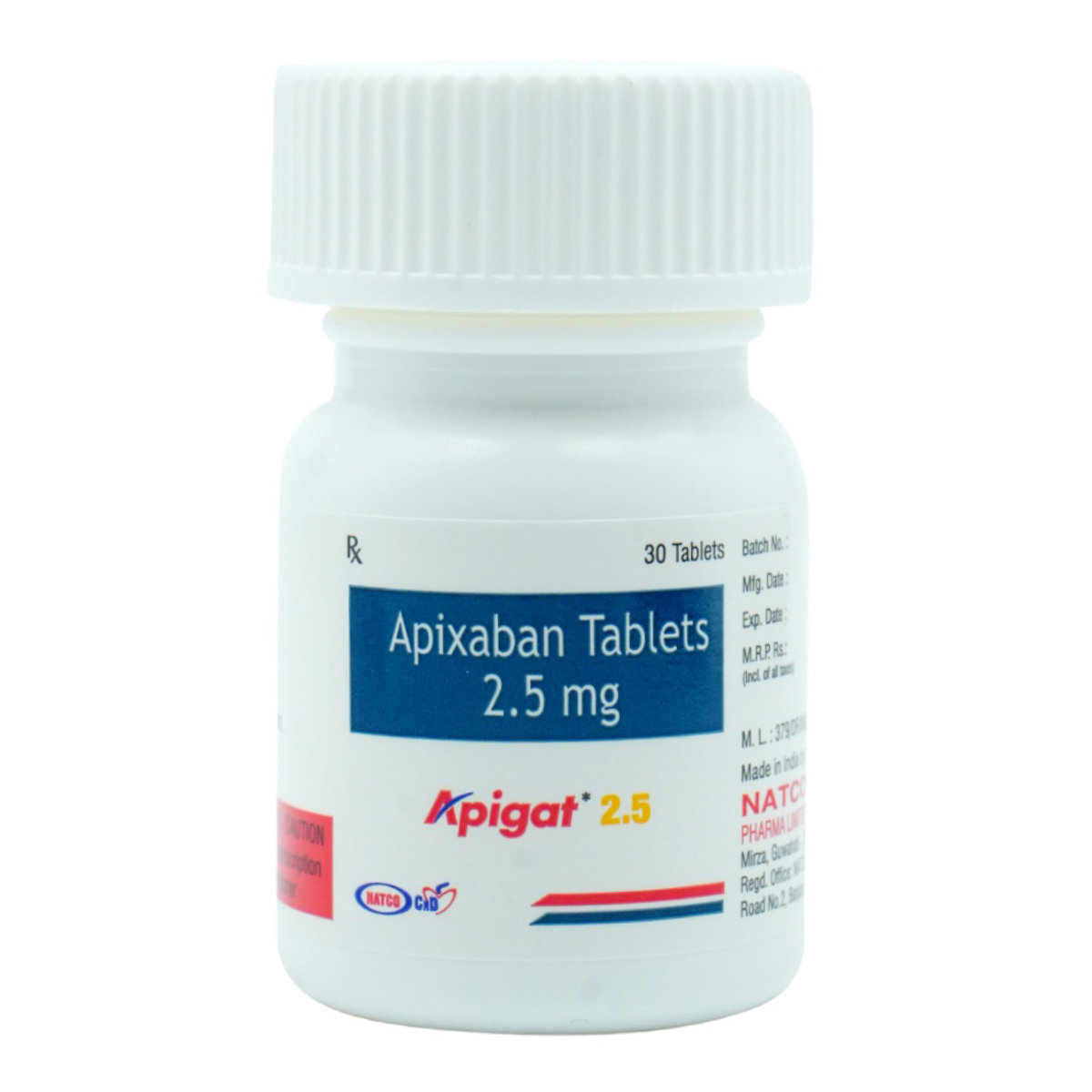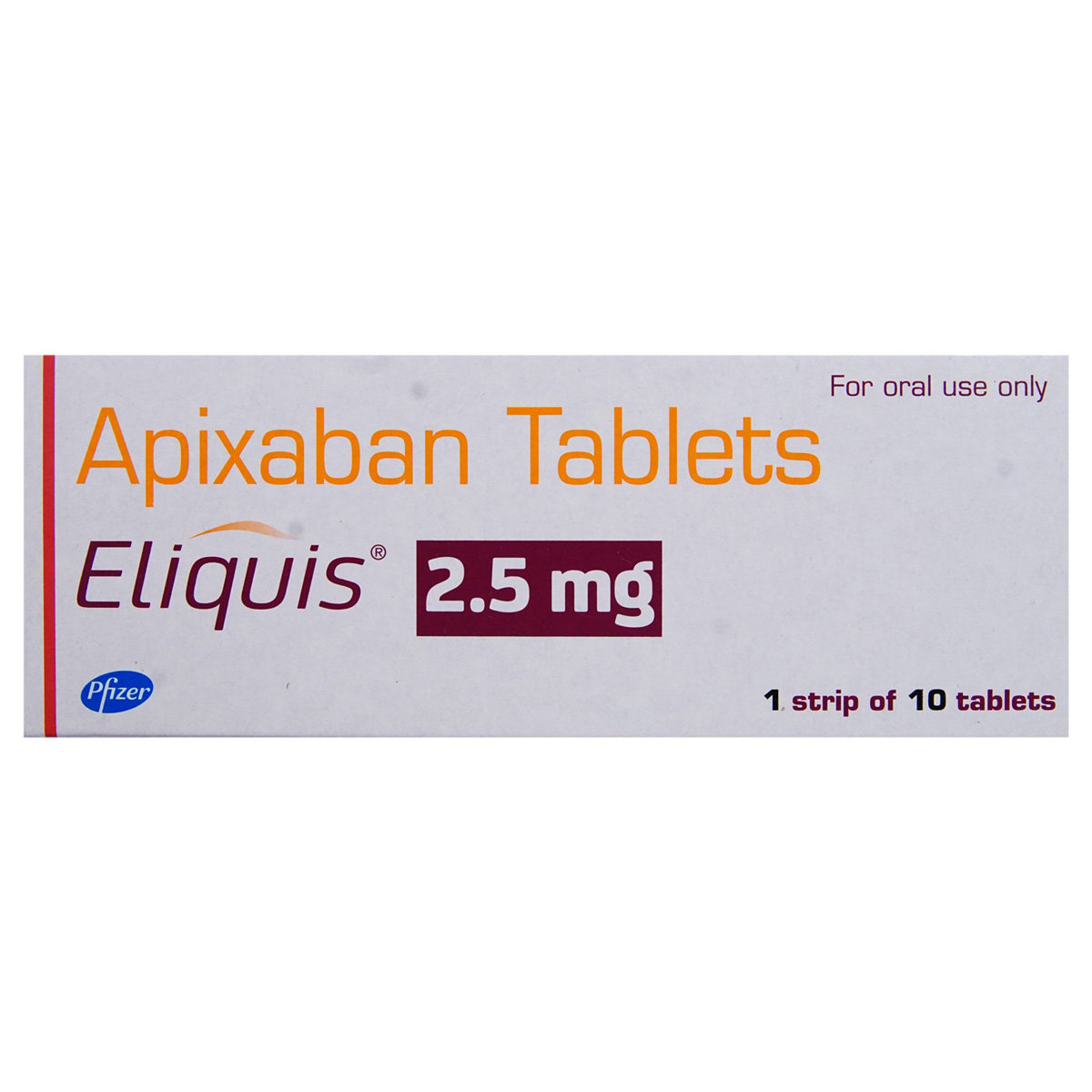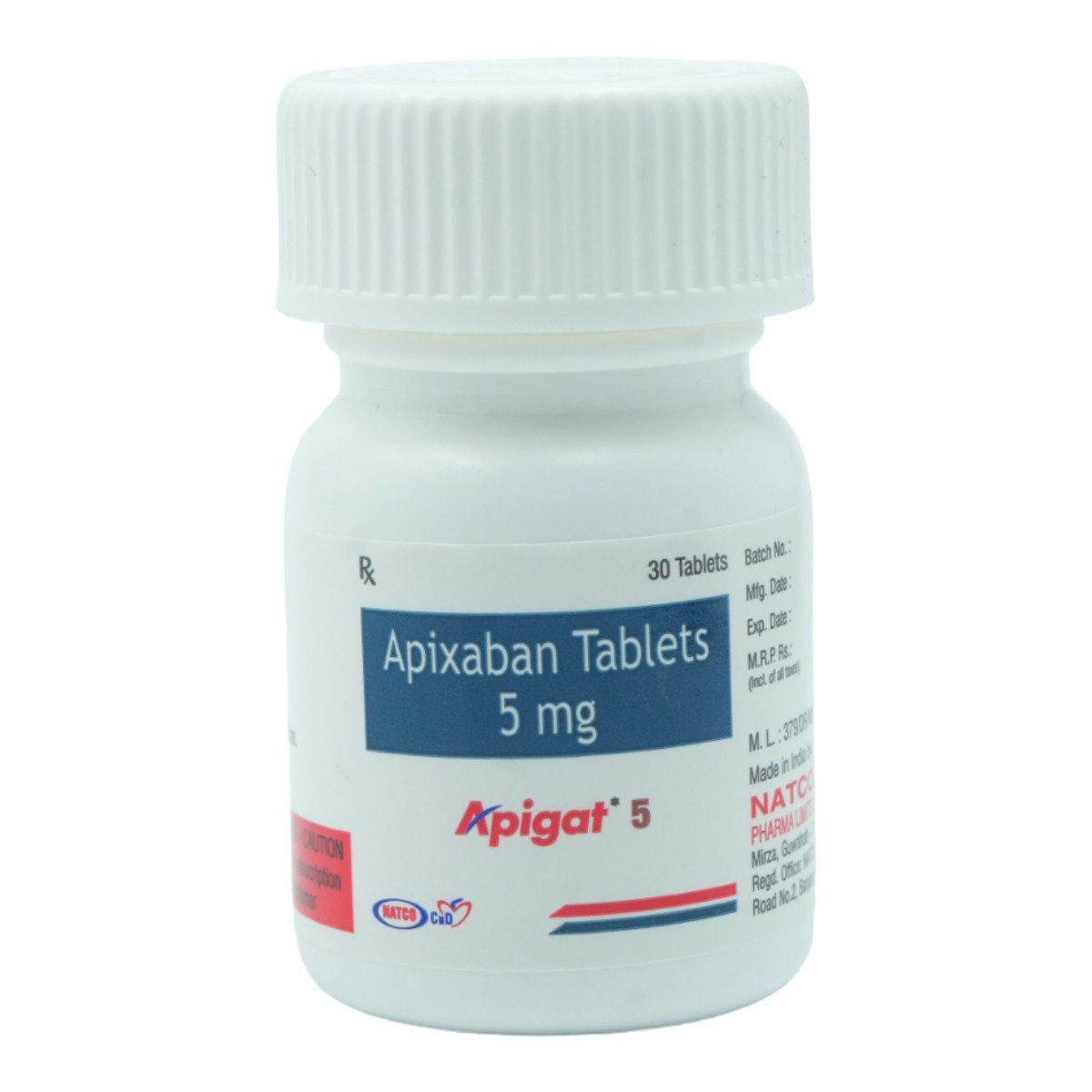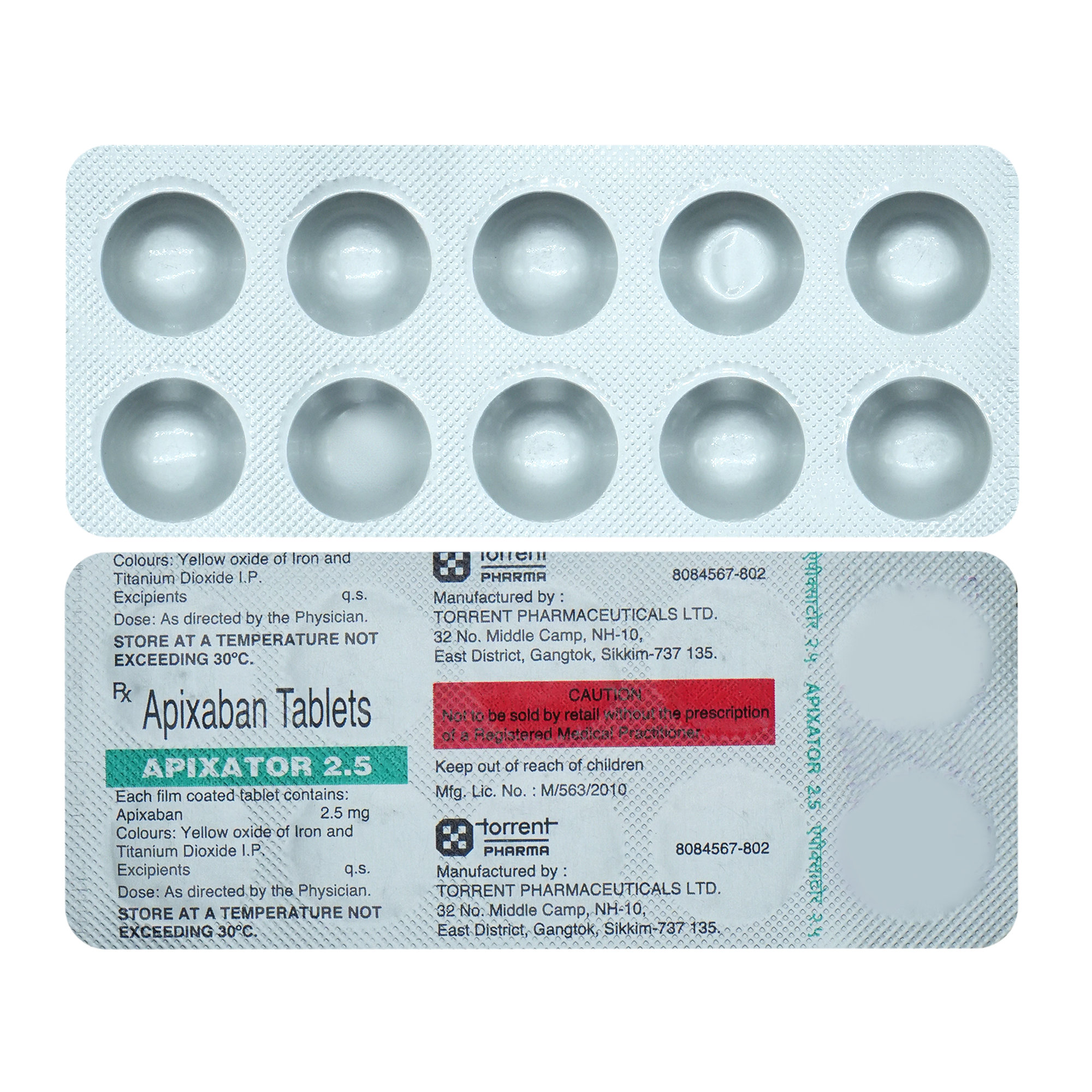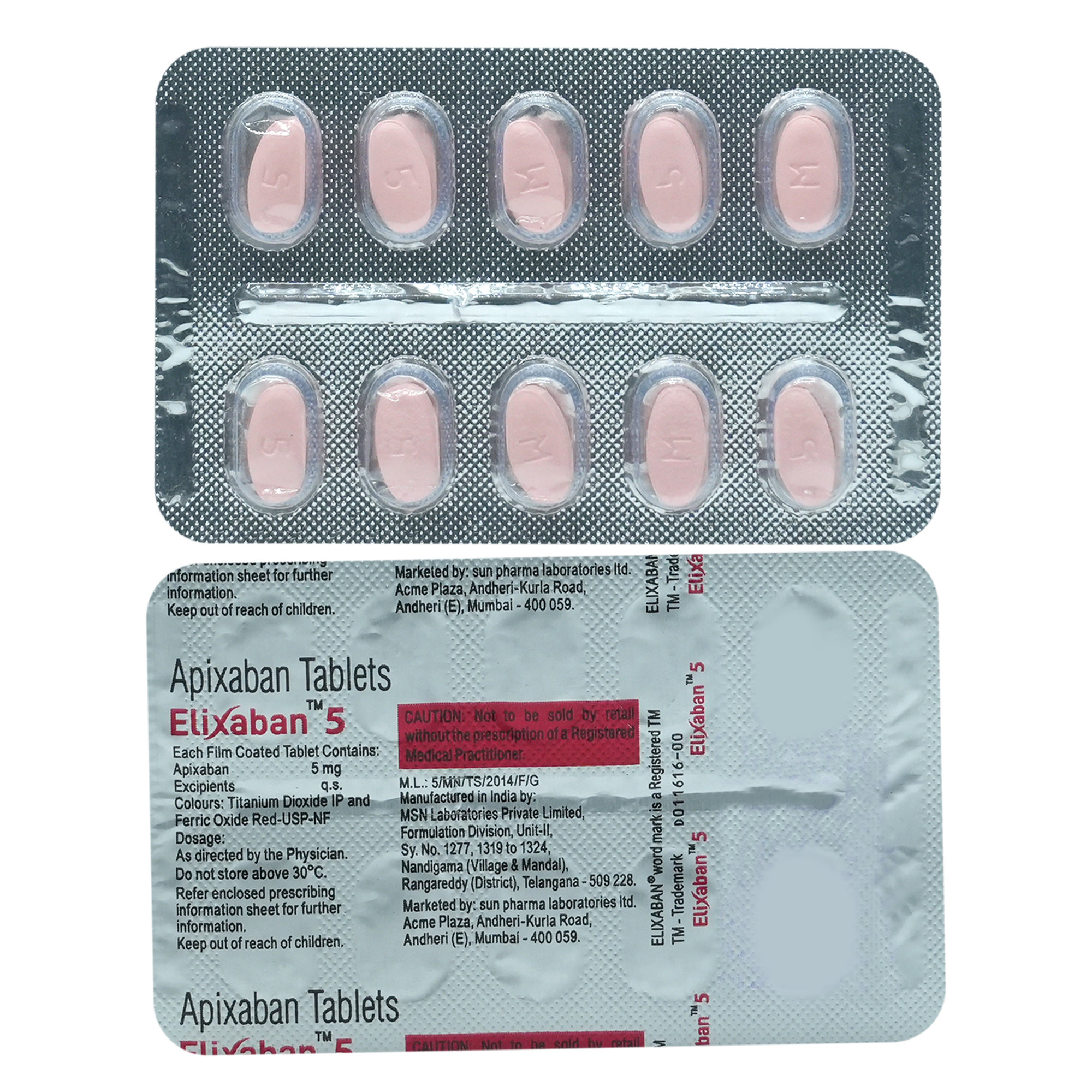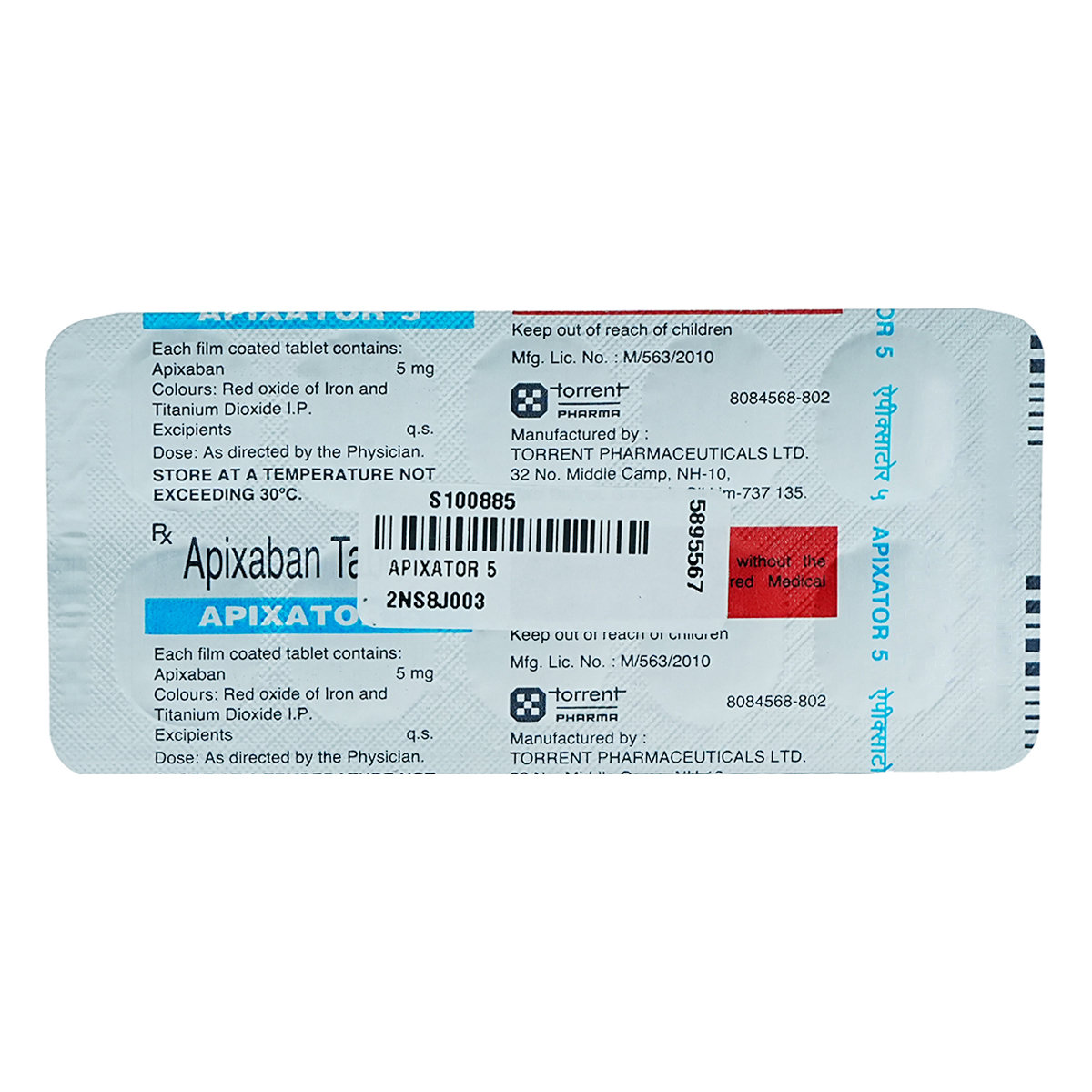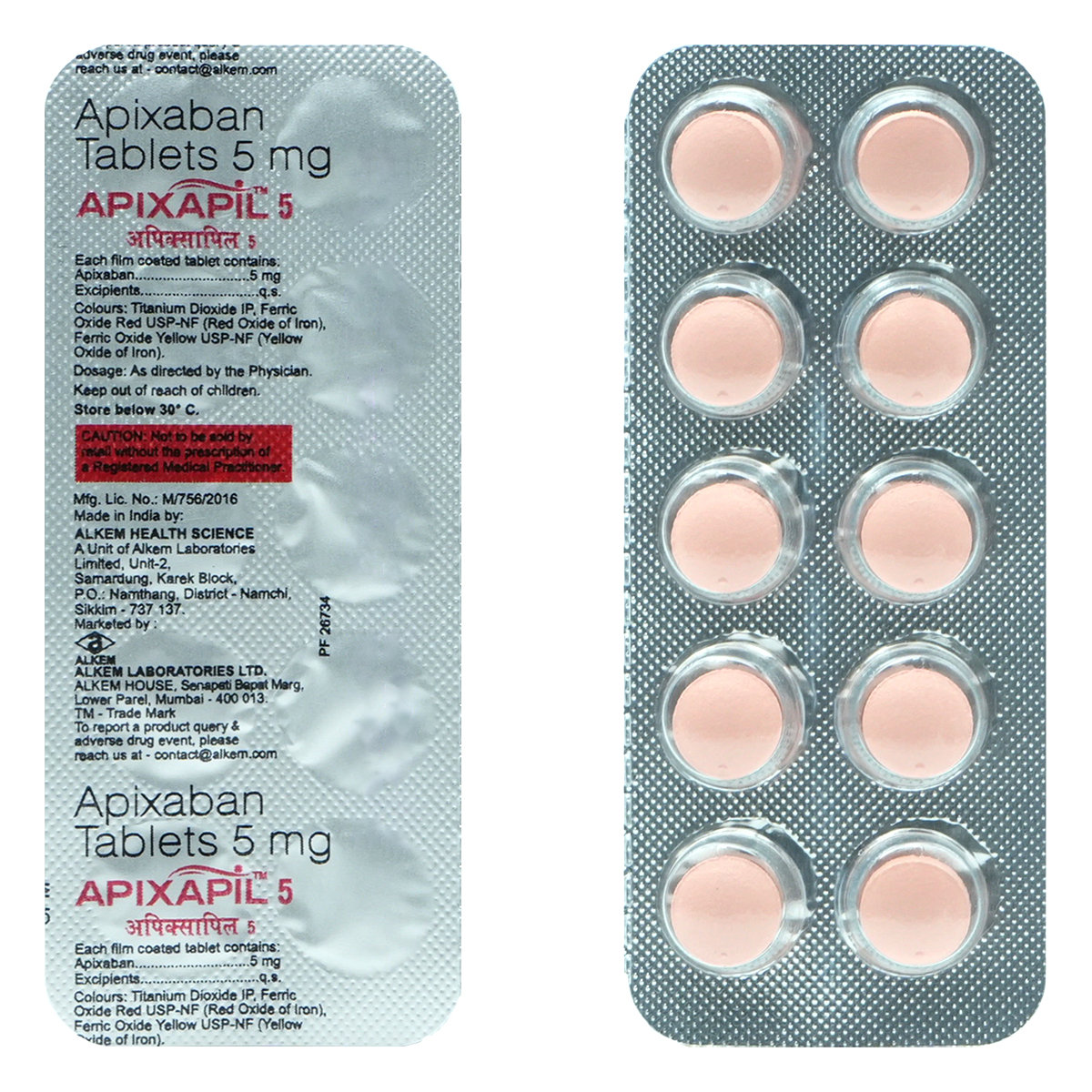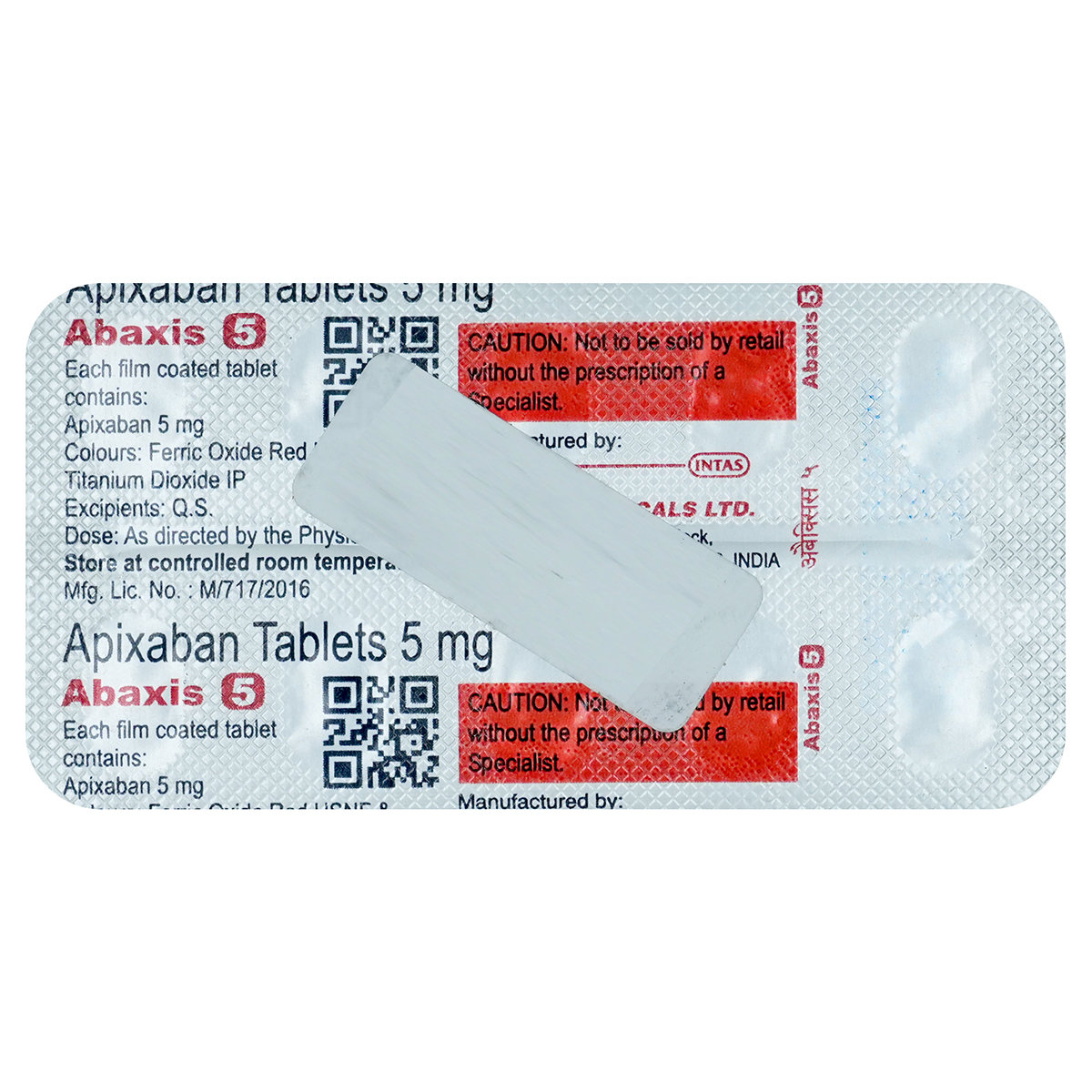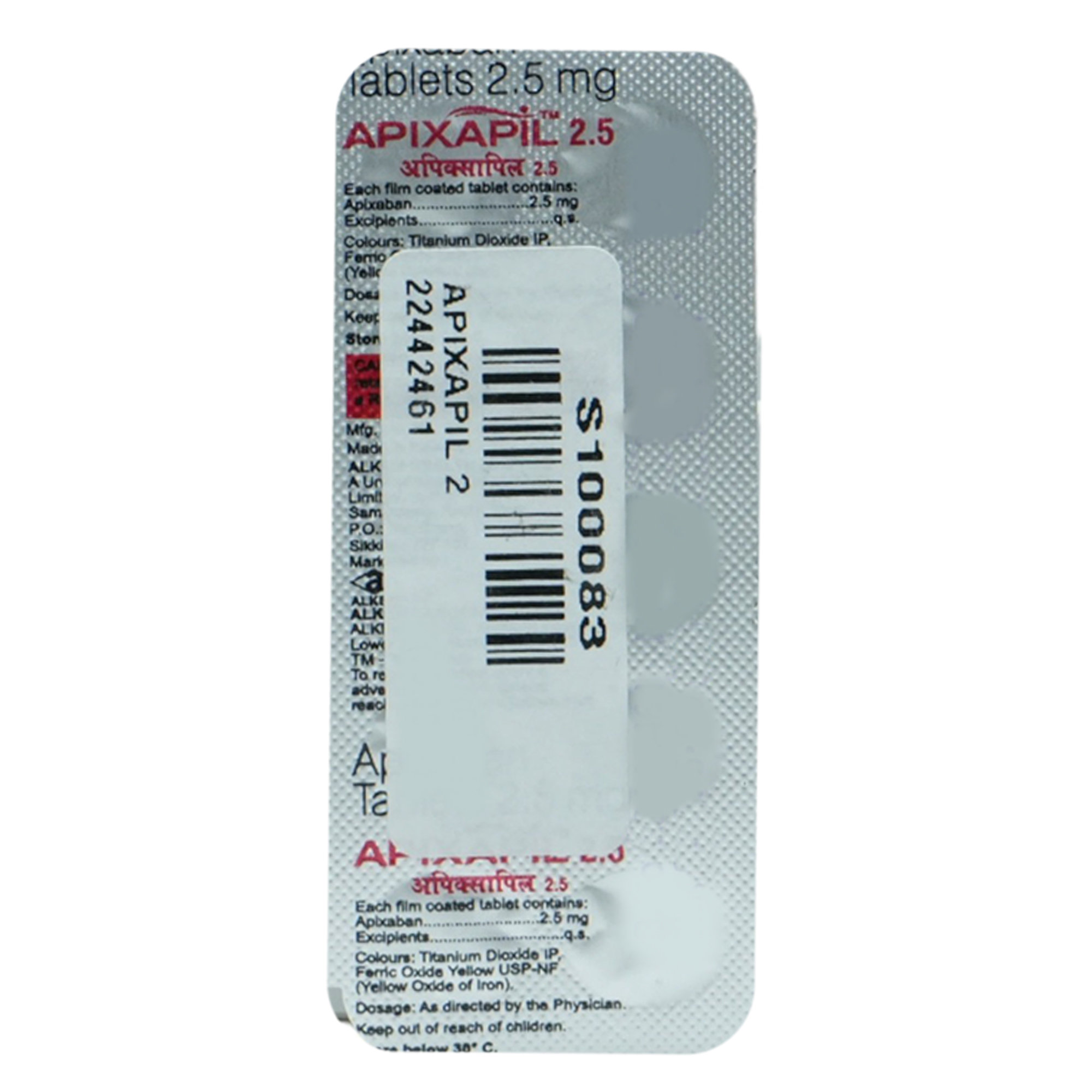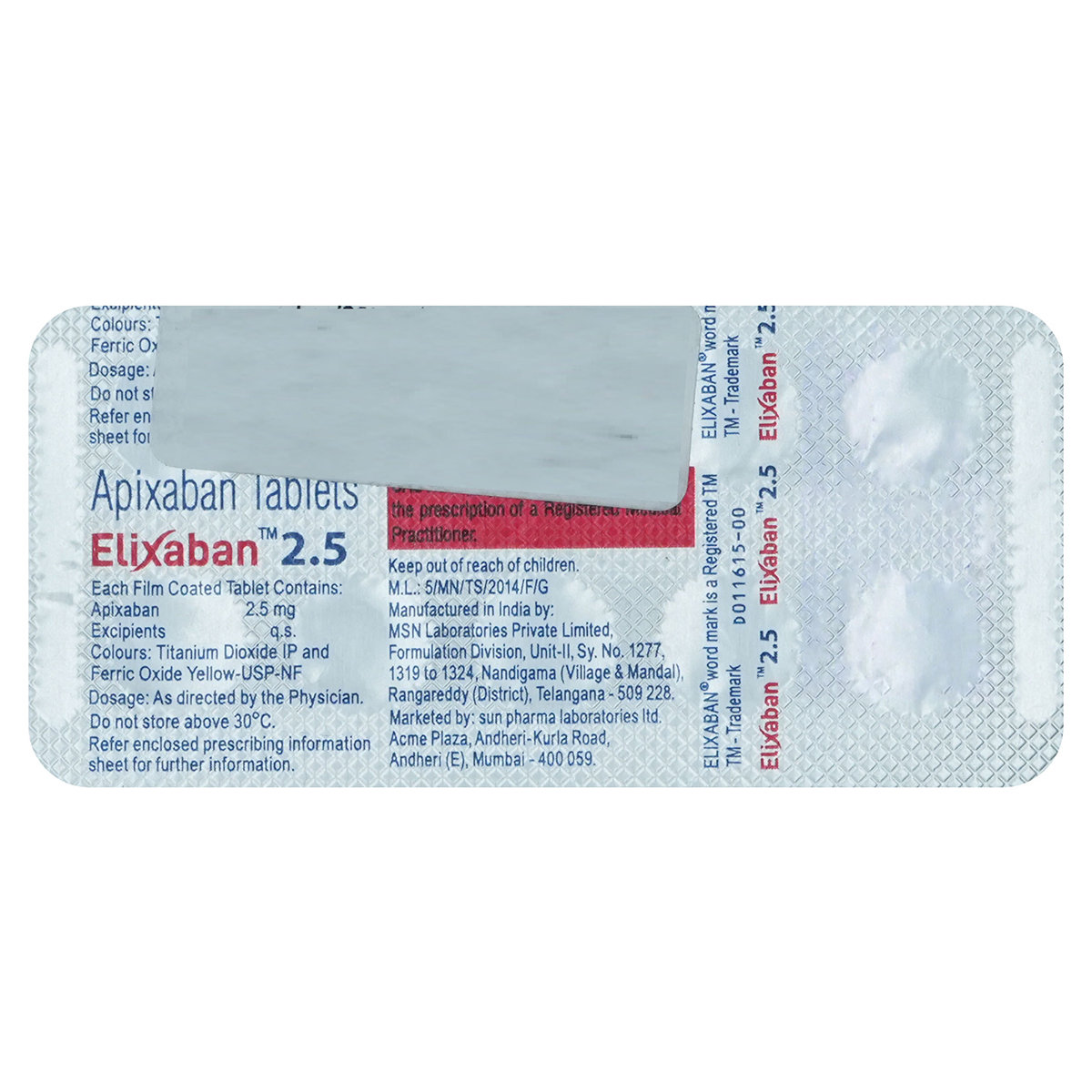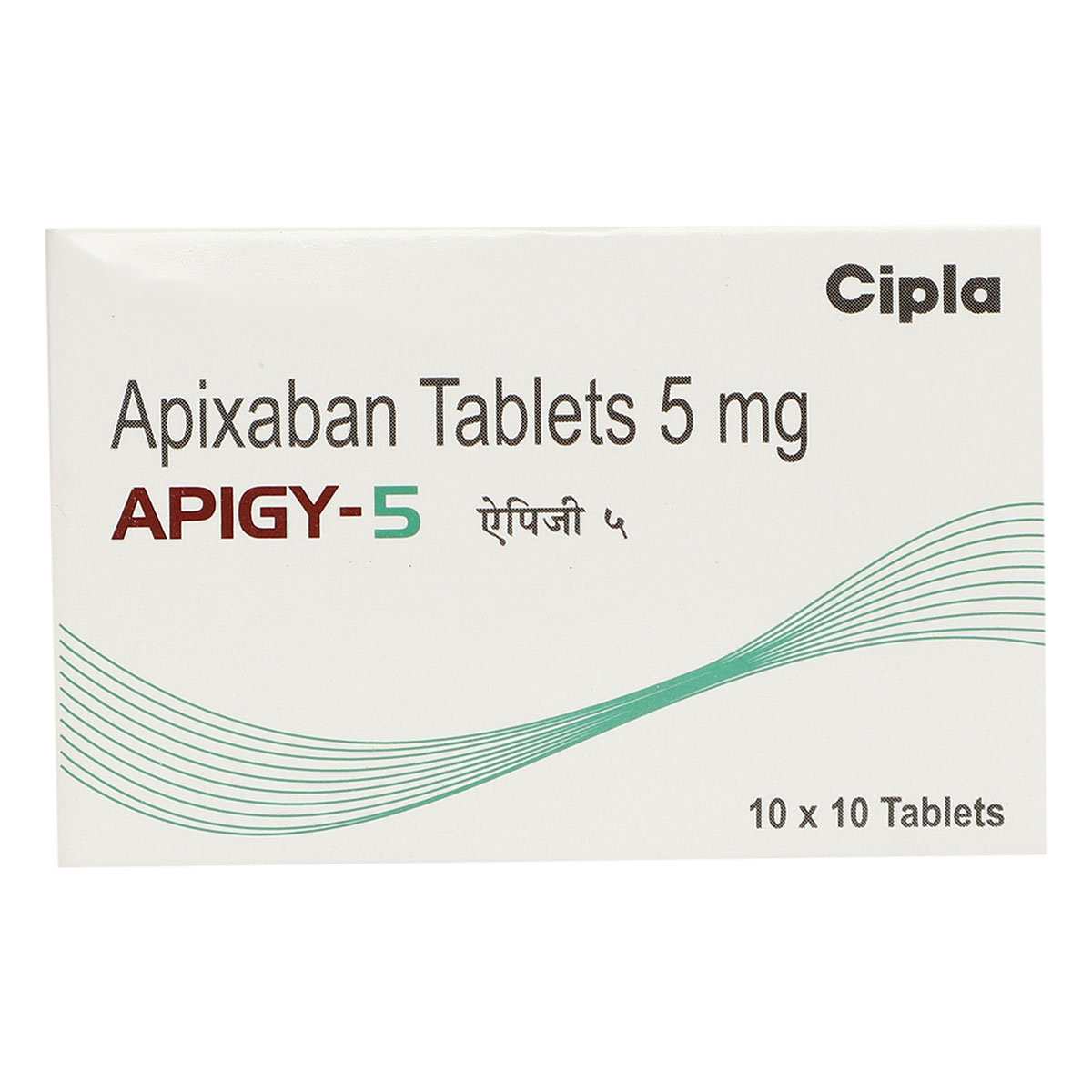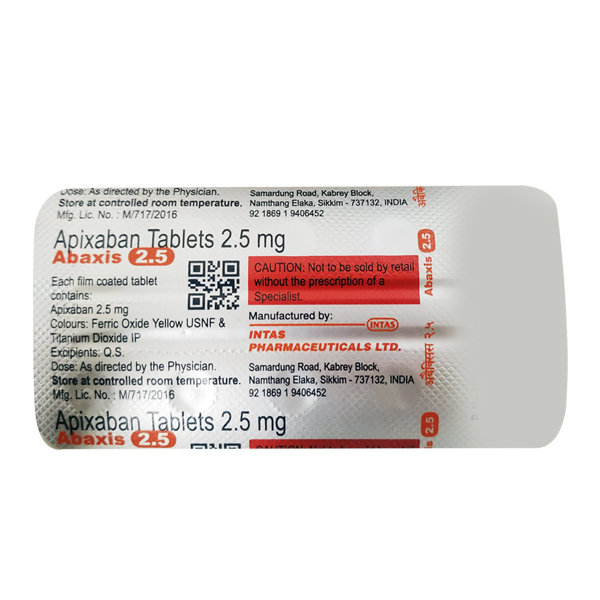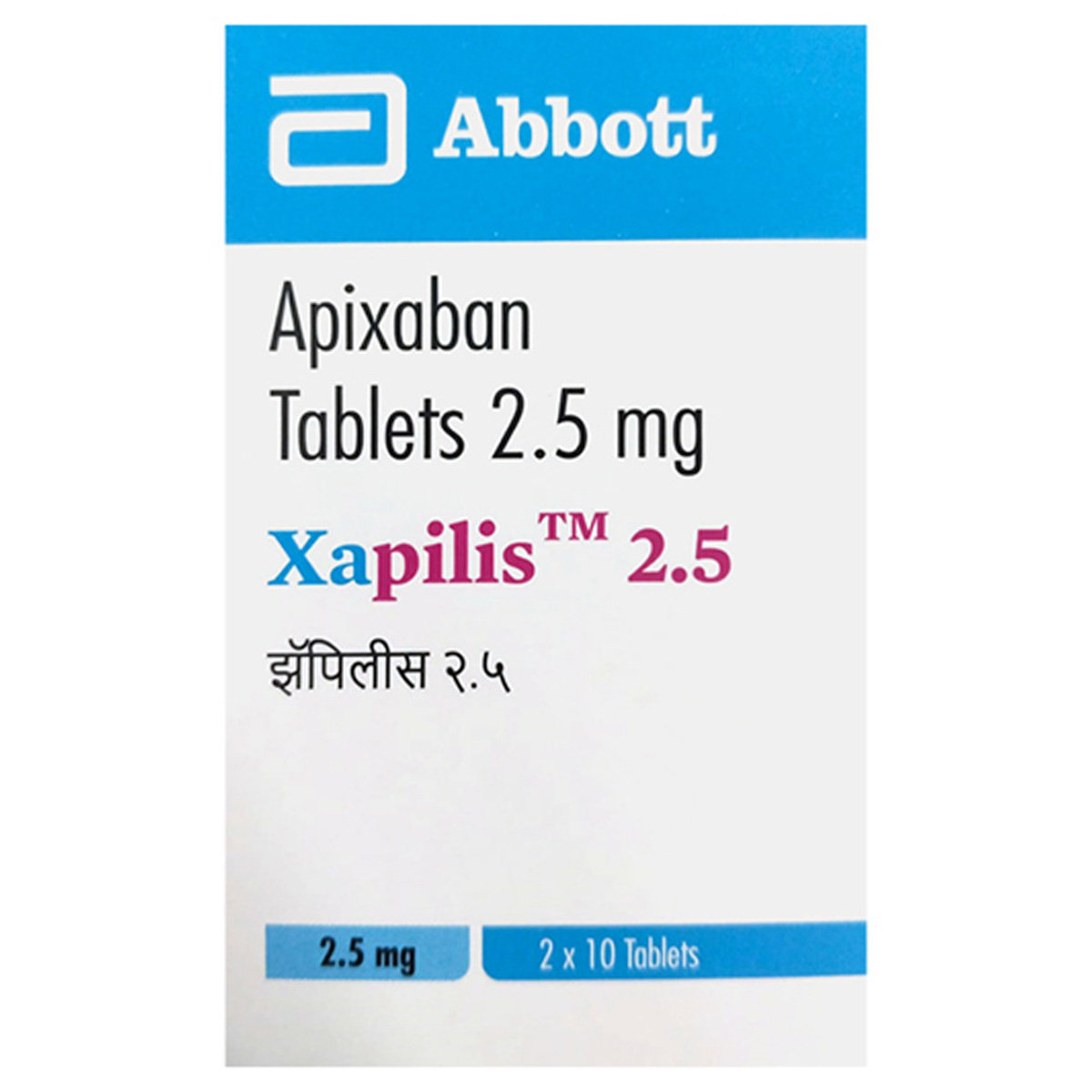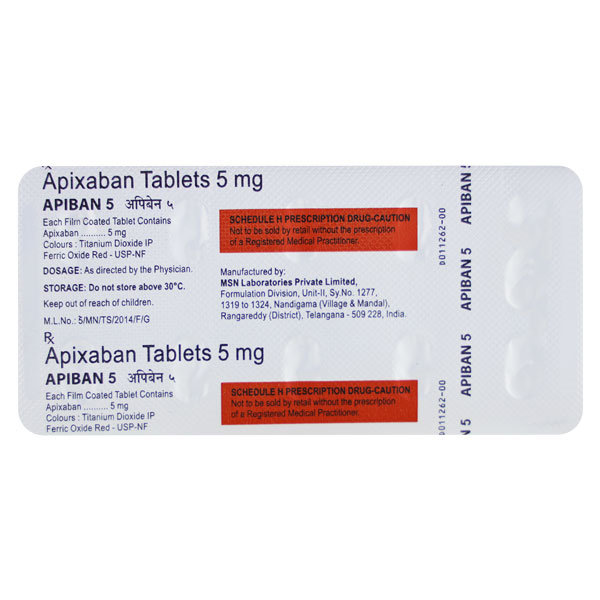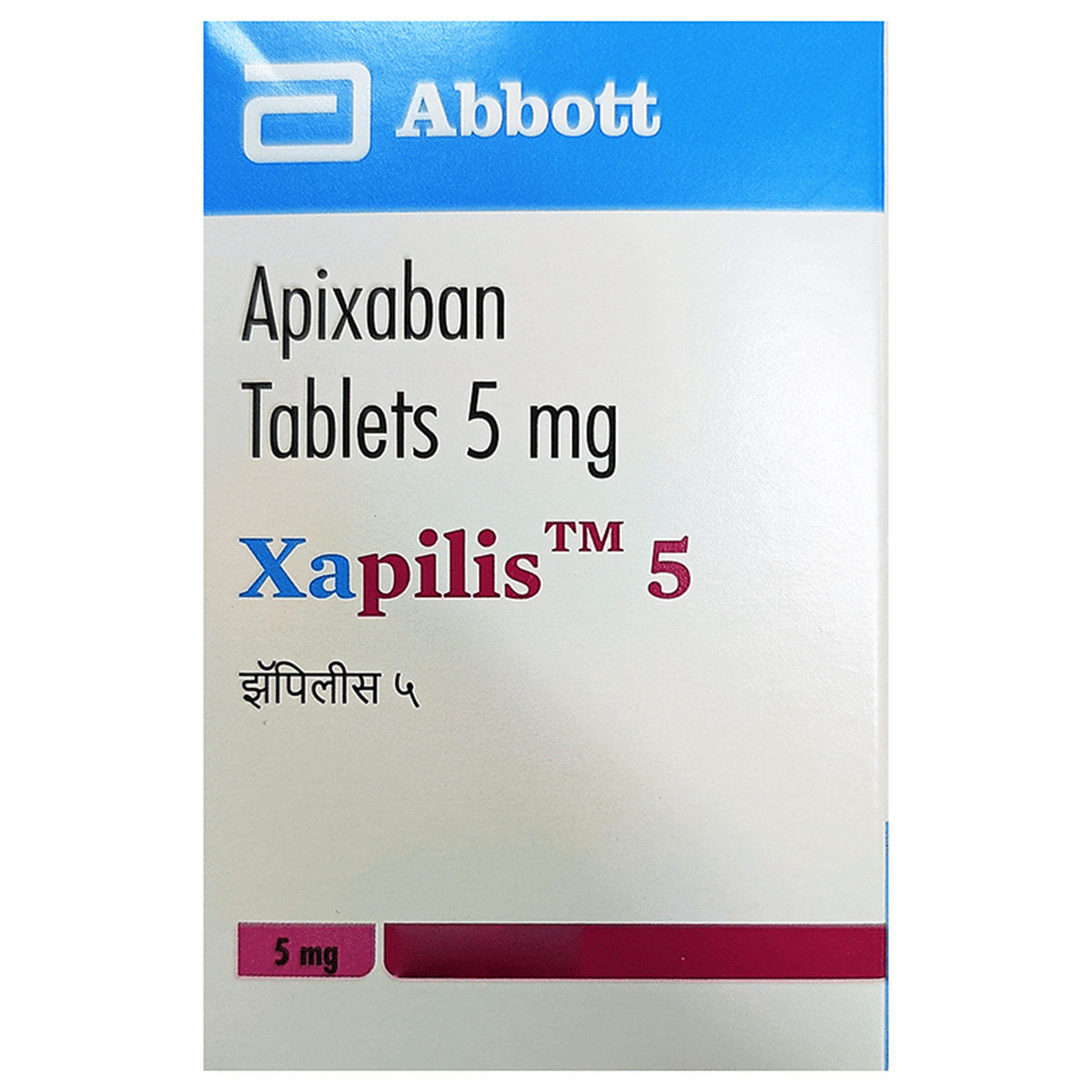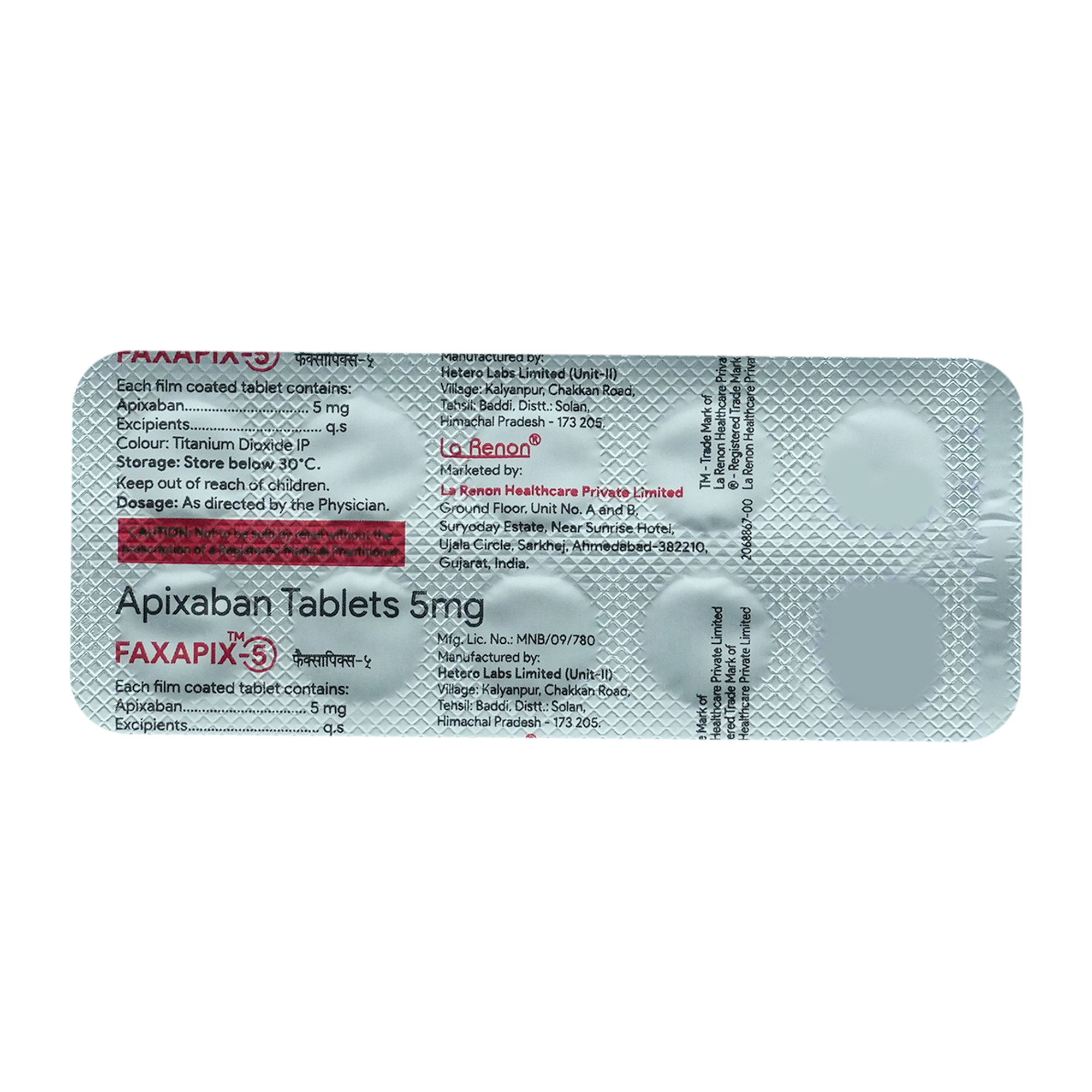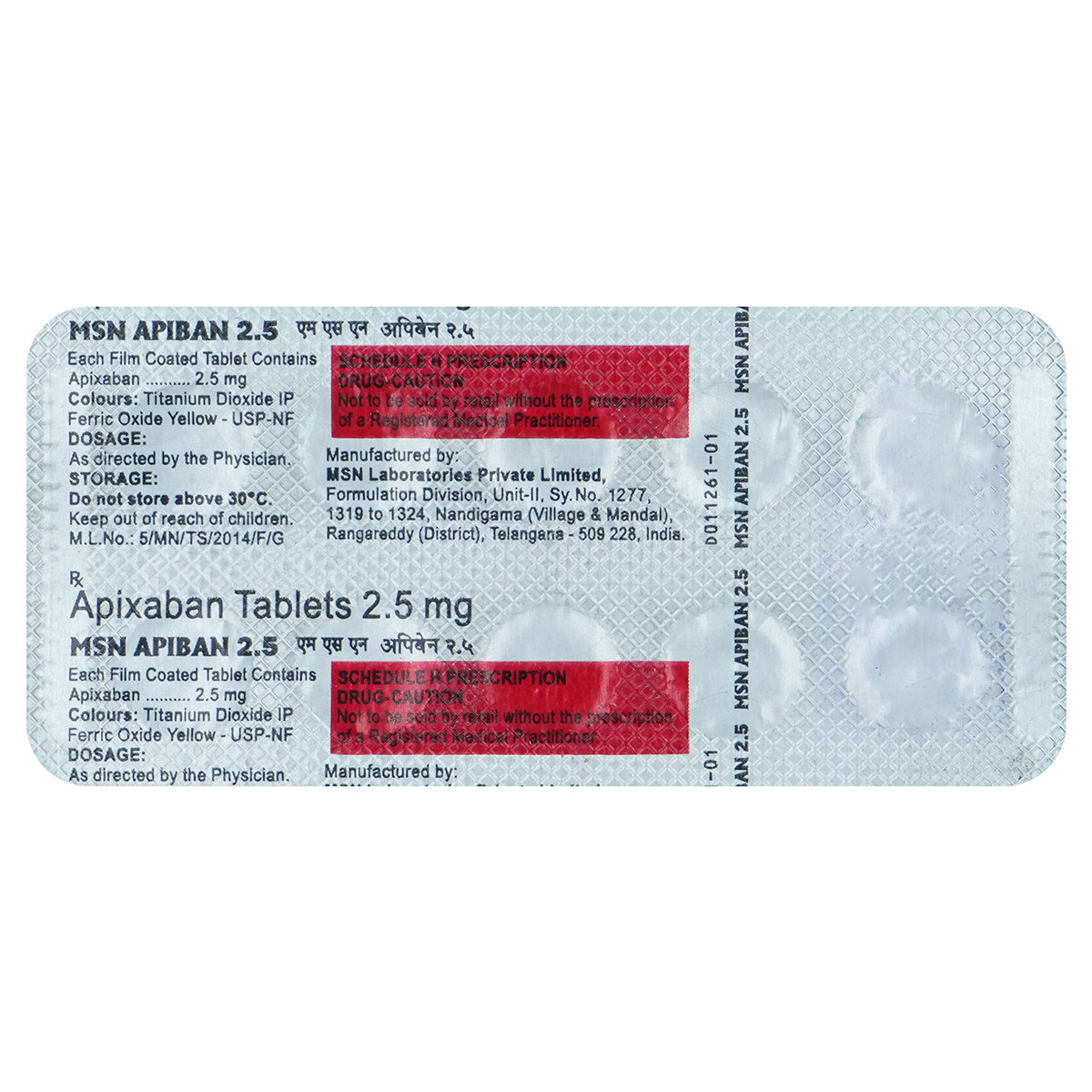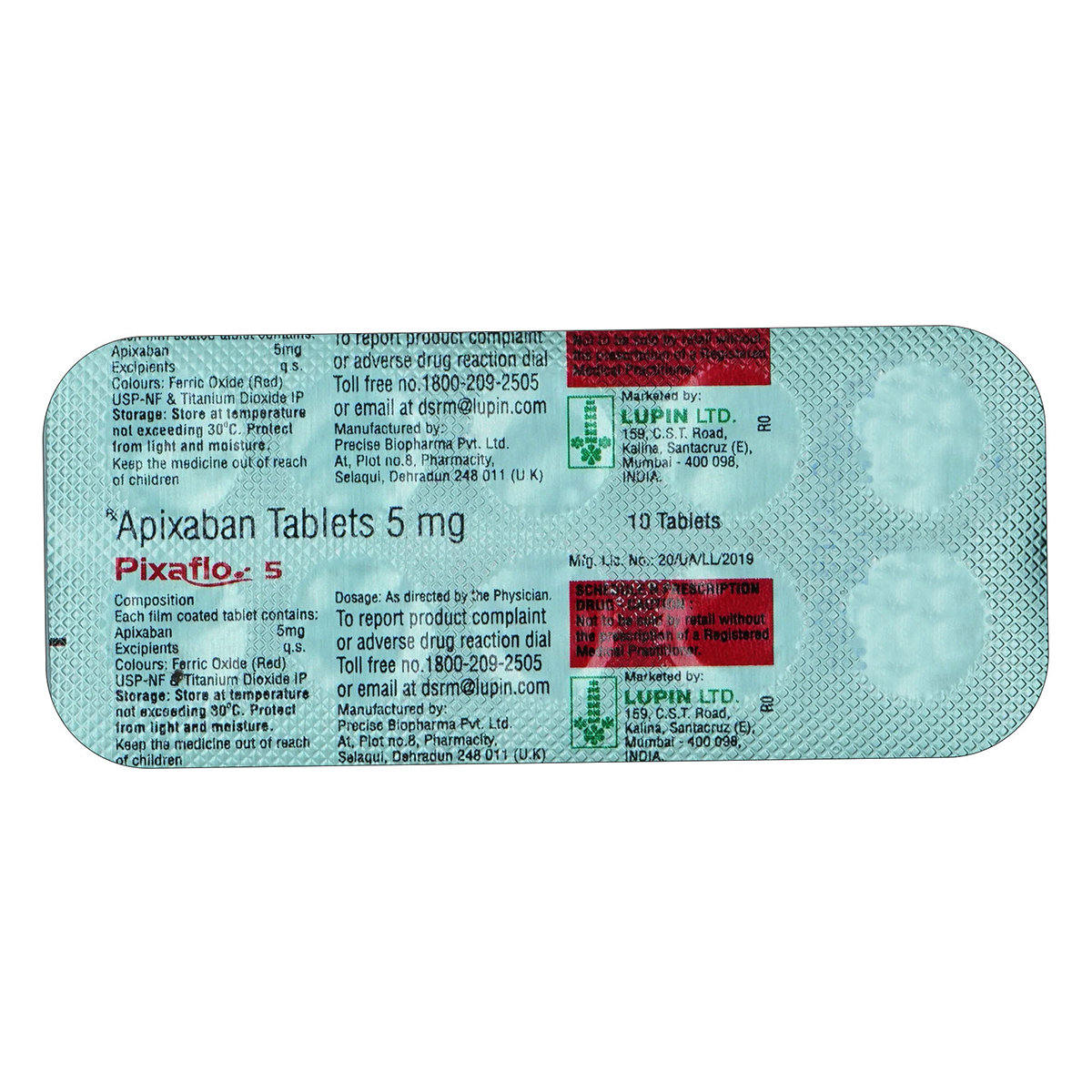Apixaban
About Apixaban
Apixaban is used to prevent and treat deep vein thrombosis (blood clots in leg veins) and pulmonary embolism (blood clots in the lung). Deep vein thrombosis is a condition in which blood clots form in deep veins, usually in the legs. Pulmonary embolism is a condition in which a blood clot blocks the arteries in the lungs.
Apixaban contains Apixaban, which works by inhibiting the action of blood clotting factor (Xa), which is an important element of blood clotting.
Not everyone who is taking Apixaban will get these side effects. Some people may experience nausea, anaemia, unusual bleeding, swelling and bruising. Most of these side effects do not require medical attention and gradually resolve over time. However, if the side effects persist or worsen, please consult your doctor.
Take this medication by mouth with or without food as directed by your doctor. The dosage is based on your medical condition and response to treatment. To help you remember, take it at the same time each day.
If you are known to be allergic to Apixaban or any other medicines, please tell your doctor. Inform your doctor if you have a stomach ulcer, recent bleeding in the brain, kidney or liver problems, high blood pressure, or bleeding issues. If you are pregnant or a nursing mother, you are advised to consult a doctor before taking Apixaban.
Uses of Apixaban
Medicinal Benefits
- Apixaban is primarily used to prevent and treat blood clots in the body by inhibiting the action of the clotting factor Xa, which is a crucial element in blood clotting.
- Apixaban is used to prevent blood clots in patients with atrial fibrillation (irregular heartbeat).
- Apixaban prevents the conversion of fibrinogen (soluble protein) to fibrin (insoluble protein) and helps in preventing blood clot formation.
Directions for Use
- Take Apixaban with or without food or as advised by a doctor.
- Recommended to take the medicine twice a day or as advised by your doctor.
- Swallow the medicine as a whole with a glass of water.
- Do not break or chew it.
- If you have difficulty swallowing the Apixaban, you can crush them and mix the powder with water, apple juice, or applesauce. Be sure to consume the mixture immediately after preparation.
Storage
Side Effects of Apixaban
- Nausea
- Anaemia (lack of blood)
- Bleeding
- Swelling
Medicines Containing this Salt
View AllDrug Warnings
- Inform your doctor if you are allergic to it or any other components present in it.
- Blood tests are recommended before and during Apixaban use to monitor kidney and liver function.
- Inform your doctor if you are pregnant or breastfeeding before taking Apixaban.
- If you have a stomach ulcer, recent bleeding in the brain, kidney, or liver problems, high blood pressure, or bleeding disorders, or antiphospholipid syndrome (an immune system disorder that increases the risk of blood clots), inform your doctor before taking Apixaban.
- Your doctor may suggest a blood test called the 'international normalized ratio' (INR) to check how quickly your blood is clotting. This test result will help your doctor determine the exact time to start taking Apixaban.
Drug Interactions
Drug-Drug Interaction: Apixaban may have interaction with pain killers (acetylsalicylic acid, naproxen, ibuprofen), heart-related medicines (diltiazem), antidepressants (nortriptyline, amitriptyline), antifungal drugs (ketoconazole), antibiotics (rifampicin), epilepsy or fits related medicines (phenytoin), anti-HIV/AIDS drugs (ritonavir) and blood thinners (warfarin, enoxaparin, heparin, clopidogrel, rivaroxaban, dabigatran).
Drug-Food Interaction: Apixaban may interact with St John’s Wort (herbal supplement for depression). Limit intake of alcohol and do not exceed 14 units per week as it may increase the risk of bleeding.
Drug-Disease Interaction: If you have a stomach ulcer, recent bleeding in the brain, kidney or liver problems, high blood pressure or bleeding problems, antiphospholipid syndrome (an immune disorder of bleeding), inform your doctor before taking Apixaban.
Drug-Drug Interactions Checker List:
Safety Advice

Alcohol
unsafeYou are recommended not to consume more than 14 units per week as exceeding this may increase the risk of bleeding.

Pregnancy
consult your doctorApixaban is a Category B pregnancy drug and is given to pregnant women only if doctor thinks benefits outweigh risks.

Breast Feeding
unsafeAvoid breastfeeding while taking Apixaban as it may be excreted in breast milk and cause adverse effects in the baby.

Driving
safe if prescribedApixaban usually does not affect your ability to drive or operate machinery.

Liver
cautionTake Apixaban with caution, especially if you have a history of liver disease. The dose may be adjusted by your doctor as required.

Kidney
cautionTake Apixaban with caution, especially if you have a history of kidney disease. The dose may be adjusted by your doctor as required.

Children
unsafeApixaban is not recommended for children below 18 years of age as the safety and efficacy is not mentioned.
Habit Forming
Diet & Lifestyle Advise
- Avoid vitamin K-rich foods such as coriander, cabbage, spinach, broccoli, collard greens, kale (leaf cabbage), black liquorice, turnip greens, avocados, Brussels sprouts, as they may decrease the effectiveness of Apixaban.
- Do regular exercise, as it helps to dissolve blood clots, especially in obese people.
- Do not consume more than 14 units of alcohol per week, as excess alcohol intake may increase the risk of bleeding and quit smoking.
Special Advise
Complete blood count (CBC), INR test, prothrombin tests are advised before and while taking Apixaban.
Patients Concern
Disease/Condition Glossary
Deep vein thrombosis is a medical condition in which blood clots form in deep veins, usually in the legs. The symptoms include leg pain or swelling.
Pulmonary embolism is a condition that occurs when blood clots break and travel to the lungs from deep veins in the legs or other parts of the body. The symptoms of pulmonary embolism include cough, chest pain and shortness of breath. Quick medication is advised to reduce the risk of serious conditions due to blood clots.
Atrial fibrillation is a condition that causes an irregular, often fast heartbeat. In the atrial fibrillation condition, blood clots are formed as blood is pooled in the upper chambers of the heart.
FAQs
Apixaban is used to prevent and treat deep vein thrombosis (blood clots in leg veins) and pulmonary embolism (blood clots in the lung). Additionally, it is used to prevent blood clots in patients with atrial fibrillation (irregular heartbeat). Apixaban works by inhibiting the action of blood clotting factor (X a), which is an important element of blood clotting.
No, you are not recommended to take ibuprofen with Apixaban as co-administration of these two medicines may increase the risk of bleeding more easily. However, if you notice blood in urine or stools, dizziness, unusual bleeding or bruising, red or black tarry stools, vomiting, weakness or headache, please consult a doctor immediately. If you are supposed to use these medicines together, you are advised to contact your doctor so that the dose may be adjusted appropriately to use safely.
No, you are usually not advised to have a tattoo or body piercing while taking Apixaban as it may increase the risk of bleeding and infection. If you still wish to proceed further, contact your doctor so that the dose may be adjusted or any antibiotics may be prescribed and let the piercer or tattooist know in advance that you are on treatment with a blood thinner.
Yes, you are advised to stop taking Apixaban a few days before surgery or procedure as Apixaban may increase the risk of bleeding. Therefore, before having any procedure or any surgery, please inform your doctor that you are taking Apixaban.
Yes, Apixaban helps in reducing the risk of stroke and heart attack by preventing blood clots. Stroke is caused as blood clots break off and travel to brain.
No, you are not recommended to stop taking Apixaban without consulting your doctor as it may worsen the condition. Therefore, take Apixaban for as long as your doctor has prescribed it.
If you have difficulty swallowing the tablet whole, please consult your doctor about alternative methods for taking Apixaban. The tablet can be crushed and mixed with water, 5% glucose in water, apple juice, or apple puree just before consumption.
If you miss a dose of Apixaban, take it as soon as you remember. Take the next dose of Apixaban at the usual time and then continue as normal.
Side effects of Apixaban include nausea, anaemia (lack of blood), and unusual bleeding, including swelling and bruising. Most of these side effects may not require medical attention and gradually resolve over time. However, if the side effects persist or worsen, please consult your doctor.
If you have atrial fibrillation (a condition in which the heart beats irregularly) and are taking Apixaban to help prevent strokes or serious blood clots, in that case, you may be at a higher risk of having a stroke if you stop taking this medication. Besides this, you may be at risk of having a blood clot form in or around your spine that could cause paralysis if you have epidural or spinal anaesthesia or a spinal puncture while taking a blood thinner such as Apixaban.
Yes, Apixaban is a blood thinner. It belongs to the class of medicines known as factor Xa inhibitors which help prevent the formation of blood clots.
Symptoms of Apixaban overdose are unusual bleeding or bruising; red, brown, or pink urine; red or black, tarry stools; and coughing up or vomiting blood or material that looks like coffee grounds. Consult the doctor if you experience these symptoms or if you have taken an overdose.

